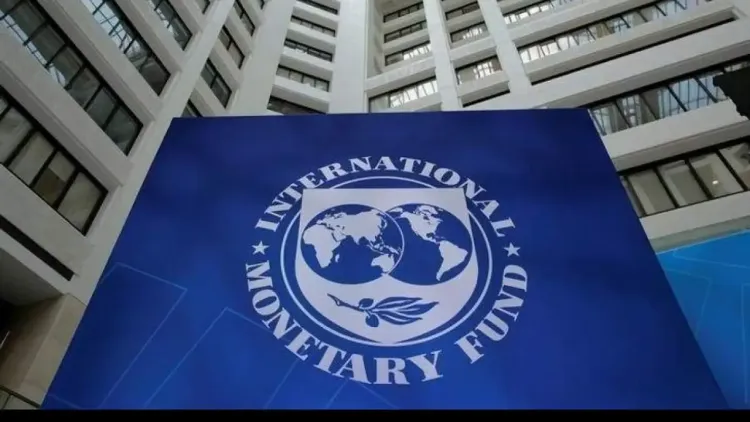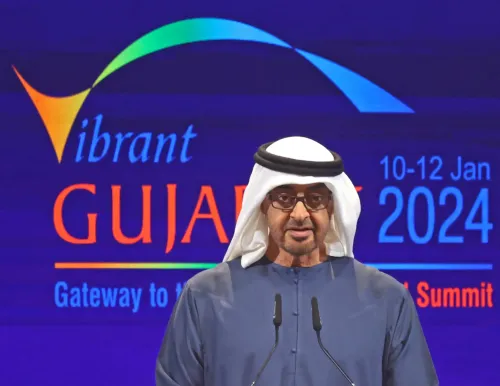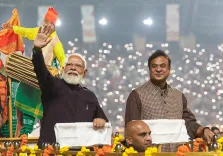India's Robust Performance: A Path to Advanced Economy Status by 2047, Says IMF

Synopsis
Key Takeaways
- India's strong economic performance offers reform opportunities.
- IMF emphasizes the importance of prudent macroeconomic policies.
- Structural reforms are key for high-quality job creation.
- Enhancing women's participation in the workforce is crucial.
- Stable policy frameworks will attract private and foreign investment.
United Nations, March 1 (NationPress) Praising India’s prudent economic strategies, the International Monetary Fund’s (IMF) Executive Board has stated that the nation’s strong economic performance presents an opportunity to implement essential reforms aimed at achieving advanced economy status by 2047.
A report following the IMF’s annual consultations with India remarked that its strong economic performance opens avenues for advancing vital and challenging structural reforms to fulfill India’s aspiration of becoming an advanced economy by 2047.
Prime Minister Narendra Modi has established the centenary of India’s Independence as a target for the country to transform into a developed nation.
The report, released on Thursday, highlighted that “Executive Directors appreciated the authorities’ prudent macroeconomic policies and reforms, which have contributed to making India’s economy resilient and once again the fastest-growing major economy.”
“Looking forward,” the report indicated, “India’s financial sector health, improved corporate balance sheets, and robust digital public infrastructure lay the groundwork for sustained medium-term growth and ongoing social welfare improvements.”
“Directors emphasized that in the wake of challenges stemming from geoeconomic fragmentation and diminished domestic demand, maintaining macroeconomic stability through appropriate policies remains crucial,” the report added.
The report noted that IMF directors welcomed India’s recent tariff reductions, stating that these measures “could enhance competitiveness and bolster India’s role in global value chains.”
In the budget presented last month, Finance Minister Nirmala Sitharaman lowered tariffs on various imports, including automobiles and liquor, with more reductions potentially on the horizon.
To accelerate growth, the Executive Board stressed the necessity of comprehensive structural reforms, as they are vital for generating high-quality jobs and stimulating investment.
“Efforts should prioritize implementing labour market reforms, enhancing human capital, and facilitating increased participation of women in the workforce,” the report stated.
To foster private investment and foreign direct investment (FDI), “stable policy frameworks, improved ease of doing business, governance reforms, and enhanced trade integration” are essential, the report noted.
In addition to labour market reforms, “supporting greater participation of women in the labor force” was also emphasized as necessary, the report concluded.










